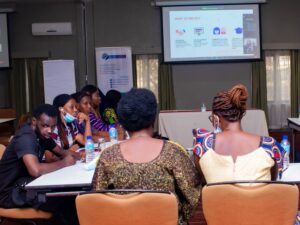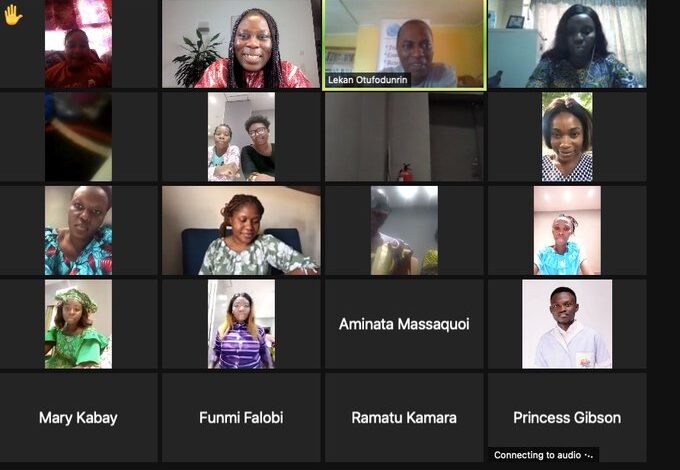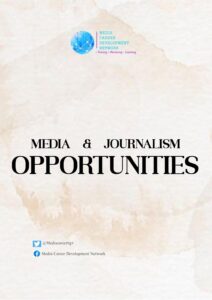An Introduction to Solutions Journalism Webinar has been held for members of the Sierra Leone Association of Women in Journalism (SLAWIJ) with a charge to adopt the approach for in-depth reporting on various issues in the country.
Media Career Development Network, Nigeria organised the training as part of the West Africa Solutions Journalism Network project by its Executive Director, Lekan Otufodunrin for the Solutions Journalism Africa Fellowship he was selected for last year.
The Facilitator of the training, Ruona Meyer, Africa Initiative Manager of Solutions Journalism Network, explained what solutions journalism is a rigorous, evidence-based reporting on responses to social problems.
She noted that “Solutions journalism (SoJo) covers a response to a problem, how it happened and the limitations. It is not a campaign or Public Relations”.
Explaining why SoJo is important for Africa, Meyer said many stories on Africa were negative, putting the continent in a bad light. “Coverage of Africa is filled with bad news – rape, killings and others,” said Meyer.
She further spoke on how to write SoJo reports, where to find SoJo stories and questions to ask when working on a solutions journalism story

Journalists must Identify issues or questions of concern, said Meyer and ask what’s missing from the public conversation.
She gave tips on where journalists can find SoJo stories which include “Think tank/policy experts, academic experts, large datasets, innovators, people involved in the implementation and the solutions story tracker,”
Questions to ask when doing a Solutions Journalism according to her are “How does the response work? “What part of the problems are not addressed in your response? How are you measuring success?”
For innovators, Meyer explained that journalists “can ask where the idea came from? Is it happening elsewhere?”
Martha Marionette Kargbo, one of the participants lamented the challenge of accessing experts.
“Most of them are refusing to speak to the media and give an opinion,” said Kargbo.
Responding to Kargbo’s complaint, Meyer, gave out websites where experts can be found and would be willing to speak including “Expert. ma, scholar.google.com, The conversation Africa.”
Aside from academic experts, another participant, Eastina Taylor, stressed that there are local experts too. “As much as we always go for experts, there are local experts too who have solutions,” said Taylor.
Malaria as an ailment, for example, Taylor disclosed that “there are local people who are affected by the problems and have solutions. SoJo is about talking to people,” said Taylor.
Some other participants, including Aminata Massaquoi, Princess Gibson, Aminata Fofanah, and Hadiatu Barrie thanked the organizers for the training.
“I want to appreciate you people. I have learnt a lot,” Gibson stated.
Millicent Kargbo, Executive president of SLAWIJ, in her contribution, appreciated the opportunity to have members of her association trained in Solutions Journalism.
She said her association was committed to empowering women journalists in Siera Leone to become accomplished journalists and hold leadership positions in media organizations.
“We want to see where women can be in charge of media houses,” said Kargbo.
Executive Director, Media Career Development Networks, Lekan Otufodunrin expressed excitement about the success of the session.
He however urged participants to pitch story ideas that can be funded by the organization.


